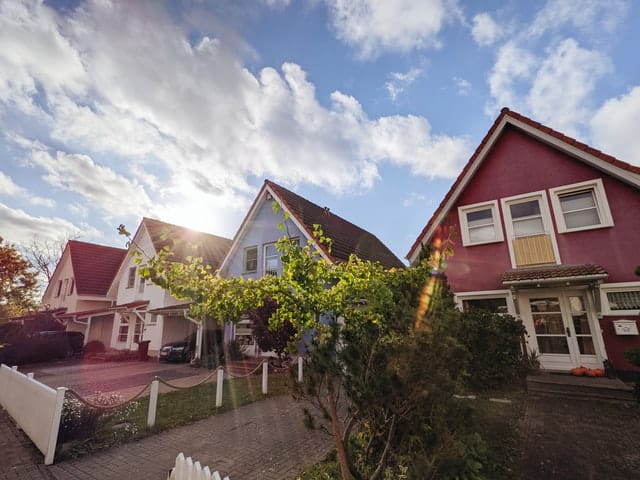Corona pandemic has hit the economies hard across the world and the UK was no exception. The country saw a surge in real estate transactions towards the end of 2020 much to the surprise of real estate forecasters. However, despite the roll out of the corona vaccine, 2021 is expected to be flat in terms of real estate sales as the government proposed stamp duty holiday will end by April and a month later the employment furlough will end. Despite the not-so-optimistic outlook, there is hope in the form of realty hotspots that will see growth in 2021, says Real Estate strategist Hirav Shah
The UK has undergone a variety of changes on the political front. Given the tough and rather prolonged issue of Brexit, the UK is finally clear about its relationship with the European Union. Then in over a decade, there is political stability thanks to the majority that the current government enjoys in Parliament. However, like the rest of the world, it bears the brunt of COVID-19 pandemic. In fact, the new strain that has been found in the UK has once again made the English wake up and take note of a grim situation that seems to have affected it economically.
All these scenarios have put the UK in a precarious situation where the slump in the real estate sector has affected the average English man in 2020. However, the election of Joe Biden as the US President and changes in other socio-economic and political situations around the world has brought about a ray of hope to the UK real estate market. With uncertainties behind them, the UK investors are now heaving a sigh of relief and looking forward to a more robust market.
But it has to be remembered that the short-term issues arising due to the pandemic will surely impact property values in the UK throughout 2021. According to realty experts, each property sector will be affected differently. For most real estate types, reduction in rents and prices is likely to result in short-term income loss, while the uncertainty brought about by the pandemic is bound to have a long-term impact.
Table of Contents
UK house price forecasts
While there are pessimistic forecasts that the realty market will be seeing a 5% drop by some experts, it has to be remembered that the UK residential property market had actually boomed in 2020. House prices were at a record high despite the shutdown of the sector during the first half of the year. Government measures such as stamp duty holiday and lifting of lockdown restrictions created a surge in demand and helped revitalise a sluggish market.
One noticeable change was homeowners moving further away from cities to outskirts and hunting for properties that had more outdoor spaces. So is the case with the London housing market. But the end of stamp duty holiday and ‘Help to Buy’ this year, as well as end of the furlough scheme, which is expected to spike unemployment, can result in a calmer housing market in 2021.
Concerns over a new strain of coronavirus are also expected to make a dent in the consumer market, but again the year will see the rollout of the vaccine, which could positively impact the market. The most bullish UK housing market forecast for 2021 sees a 4% rise in realty activities for the UK.
Ironically, the house prices rose to a six-year high at the end of 2020 rising by 7.3% in the year. However, mortgage lenders feel the market will slowdown in the following months as the stamp duty holiday ends at the end of March 2021 and furlough would end a month after that.
House prices are expected to fall between 2% and 5% during the next year, while some pessimistic experts put the fall at 8%. As mentioned above, the most bullish forecast puts the housing rates to increase by 4%. But most experts feel the market will be flat across all parts of the UK in 2021, before accelerating in 2022.
On the other hand, realty forecasters such as Zoopla, Knight Frank and Chestertons see a rise of 1% to 1.5%, which is way less than what was seen in 2020.
The housing market almost came to a grinding halt during the first lockdown even as the economy shrank by 26%. But what took experts aback was the sharp rise in realty purchases since 2016 thanks to temporary stamp duty holiday and pent up demand. In December 2020, the prices were 5.3% above those in March. The stamp duty cuts saved buyers in England and Northern Ireland nearly 15,000 pounds on 500,000 pounds home.
However, as per industry experts, there is a logjam of 6,50,000 properties changing hands, which is likely to keep the market busy in the first quarter of 2021. Once the stamp duty holiday ends, the transactions are likely to end 20-30% below normal levels, which will leave the prices at just 1% higher than the 2020. This is likely to increase to 3% in 2022.
On the whole, housing prices are expected to rise in north-west England which is likely to gain 27.3%, whereas London is expected to gain a low 12.7%. However, prices could accelerate to 6% in 2022 and 8% in 2023.
The pandemic has also changed interest in the kind of properties bought, with many wanting less densely populated locations and detached properties vis-a-vis apartments. The pandemic has also seen the need to increase the availability of affordable and improved housing facilities. In the build-to-rent sector, the corporate developers have been working on properties that include home office space, high-speed internet connectivity as well as shared workspaces.
Low mortgage rates a great draw

On the other hand, banks are more than willing to lend as they are gaining more confidence as normalcy returns slowly and steadily. This will mean that they will put out more mortgage products which will be welcome for homebuyers and investors. This will also give a push to accidental savers to invest in properties, to take advantage of low mortgage rates. As the interest rates and house prices are likely to increase in coming years, 2021 is indeed a good time for those looking to invest in properties.
Reasons for rise in UK home prices
a) Strong buyer demand from equity rich buyers for whom affordability is not an issue and there is no concern of job loss.
b) There is popular sentiment that owning a home is more important in the continuing pandemic era.
c) Increase in inventory.
d) Migration of many out of London to suburbs and northern England and Scotland.
e) Low mortgage rates
f) Stamp duty holiday till the end of March
g) Pent up demand following pandemic lockdown
h) Speculation as economy improves and foreign investors return
i) Rent prices are also increasing
Best places to invest in 2021
There are a number of UK buy-to-let hotspots vying for the spotlight.
Here are some of the best places to invest in 2021 as regional properties stand out against the traditionally popular markets
- Glasgow,
- Edinburgh,
- Newcastle,
- Leeds,
- Manchester,
- Liverpool,
- Sheffield,
- Nottingham,
- Birmingham,
- Brackhell.




























